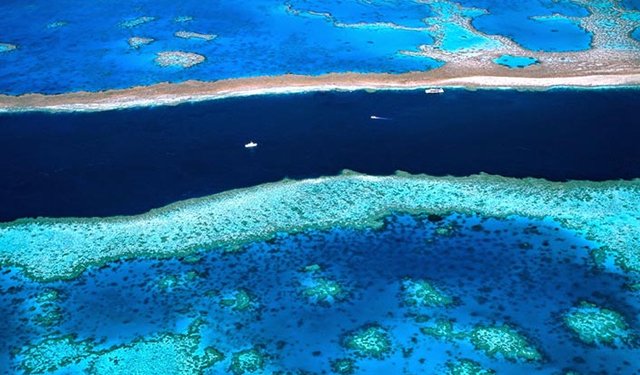Alarming ocean temperatures for the Great Barrier Reef – The Great Barrier Reef, one of the planet’s most precious natural assets, is facing an unprecedented crisis. A recent study published in the journal Nature revealed that the Coral Sea’s surface temperatures reached in 2024 the highest levels ever recorded in the last 400 years. This finding not only highlights the vulnerability of corals, but also highlights the devastating impact of climate change on our marine environment.
Corals, with their unique ability to record climate variations through their skeletons, have become silent witnesses to centuries of environmental change. Using core samples, scientists have been able to chart a detailed chronology of ocean temperatures and sea level changes from 1618 to the present day. These data offer a clear and alarming insight: global warming has pushed ocean temperatures to unprecedented levels, far exceeding those recorded during the entire Industrial Revolution.
In 2024, the Coral Sea recorded temperatures 2-3 degrees higher than the historical average, an increase sufficient to trigger critical thermal stress on corals. This increase triggered the fourth global coral bleaching event, a phenomenon that is threatening the survival of these vital organisms. Coral bleaching, in fact, occurs when excessive temperatures force corals to expel the symbiotic algae that live in their tissues, thus losing their colour and ability to survive over the long term.
The study conducted by Ben Henley, an expert in palaeoclimatology at the University of Melbourne, showed that 2024 marked a turning point in the climate history of the Great Barrier Reef. Data collected from skeletal samples showed that temperatures in January, February and March this year were the highest ever recorded in the 400 years of analysis. This result, surprising to the researchers themselves, confirms the decisive influence of climate change on the current coral reef crisis.
The link between global warming and bleaching events is now indisputable. Scientists have used climate models to confirm that rising ocean temperatures are directly related to anthropogenic climate change. However, despite this evidence, UNESCO recently decided not to list the Great Barrier Reef as an endangered site. This decision has caused concern among experts, who fear that without drastic measures, the future of the reef may be compromised.
The Great Barrier Reef is not only an ecological jewel, but also a pillar of the Australian economy, generating more than $6.4 billion a year and supporting about 64,000 jobs. However, the continued deterioration of the reef threatens not only the marine ecosystem, but also the tourism industry and the local community that depend on it.
Experts hope that this new study will serve as a wake-up call to UNESCO and the international community, pushing for greater protection and conservation of the Great Barrier Reef. Its survival is not only an environmental issue, but also a symbol of the global fight against climate change.
Australia is now required to submit a detailed report on the conservation status of the Great Barrier Reef by February 2025, a crucial step in ensuring that this natural treasure can be preserved for future generations.
Alarming ocean temperatures for the Great Barrier Reef







